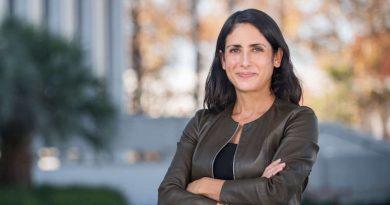These travelers moved to Europe despite knowing no one — here's how they make a living
Many people dream of starting a new life in a new country.
But problems, such as earning money, finding a place to live and meeting people, hold them back.
Here are two women travelers who didn't let these details stop them from moving to Europe — and how they feel about their decisions today.
From tropical island to the Arctic
It's common to yearn for a slower pace of life. But moving from bustling Singapore to a small town in Scandinavia is likely too slow — and too frigid — for most.
However, for 27-year-old Weisi Low, living in the Arctic created exhilarating adventures and a stronger appreciation for the great outdoors.
After growing up fewer than 100 miles from the equator, Low now lives in Longyearbyen, Norway — a town of 2,300 residents that is one of the world's northernmost permanent settlements. It's located on the Svalbard archipelago, which is east of Greenland and about 650 miles from the North Pole.
But Low knew what she was getting into. In 2017, she visited Svalbard as a tourist during its "dark season," which blankets the town in darkness from November to January.
"I have always been fascinated with traveling to secluded places and was keen on experiencing something new and out of the ordinary," said Low.
Back at home, she continued to think about Norway, realizing she preferred views of snow-capped mountains over high-rise buildings. After graduating from college in 2019, Low moved to Norway with 3,000 Singapore dollars ($2,229) and a 50-liter backpack.
"I didn't want a life where I just woke up to buildings after buildings," she said. "I knew early on that the conventional route many took will not excite me."
She gave her new adventure a timeline too — three years. "If my plans fail, all I lose is just three years of my life," she said.
To make ends meet in Svalbard, Weisi worked as a cycling tour guide and at a shop selling arctic equipment. She also works remotely as a marketing manager, with clients around the world.
"When I first arrived, I printed copies of my resume and went around town handing them out to establishments in Longyearbyen," she said. "That gave me the chance to grow my network and meet new people."
"Just like in Singapore, everyone knows each other as it's a very small and tight-knit community," she said. "Forging new friendships with people of different walks of life was one of the biggest highlights."
In a place where polar bears roam freely, and traveling via snow mobile is as normal as driving a car, Low spends most of her time outdoors, partaking in adventures she would never experience in Singapore.
"In the winter, you can drive over the glaciers as it's all frozen. We took a hike up one of the glaciers called Longyearbreen and went under an ice cave where we had coffee," said Low. "In the summer, the glaciers will melt, and you can see the water flowing down into the rivers and seas. It's really beautiful."
The Northern Lights are a common sight too, said Low. "During the polar season, you can see the lights in the middle of the afternoon since the sky remains dark for months," she added.
Spending the past two years in Svalbard has allowed Low to grow independently and prioritize her life.
"Svalbard has taught me the importance of having a balanced lifestyle," she said "I prioritize my work and friendships, but… also… my desire for adventure."
Starting a hotel during a pandemic
The Covid-19 pandemic caused many to rethink their work lives. But Filipina Christine Cunanan took a much bigger leap of faith by moving over 7,000 miles from home to open a hotel in Spain.
"Manila turned into a ghost town overnight and everything from work to birthday celebrations went online," said Cunanan.
When the international airport in Manila reopened, she booked a flight to Tokyo, where she lives part-time and works as the editor-in-chief of a travel magazine.
On the flight, she decided to look into buying a house in Spain despite having no ties to the region. She had traveled there twice before the pandemic closed borders around the globe, and Spain was still on her mind.
"When I got back home to Tokyo, before even unpacking my bags, I went online and searched properties in Spain," she said. "When I saw this one in Granada online, I said 'Wow, this is beautiful.'"
The house was owned by a British couple, and it was licensed to function as a small hotel, although the owners used it as a private home.
"It was perfect," said Cunanan, despite being "in a region where I initially knew absolutely nothing and no one."
"People may think I exaggerate but… everyone I needed for this move and for my new business…appeared in my life at exactly the right time," she said.
A lawyer she'd never met handled the sale, an acquaintance she had "spoken three words to at a cocktail party a year before" took possession of the keys in her absence, said Cunanan, who bought the house sight unseen.
"This acquaintance's best friend came along to help him, and the best friend has not left the property since Day 1," she said. "He's now my business partner."
Approximately one year after buying the house, Cunanan opened the luxury villa hotel La Esperanza Granada in August of 2021.
"Moving to Spain and renovating a hotel amidst Covid was simply a matter of one door opening after another," she said. "Some things are just meant to be."
In the 10 weeks that the hotel has been open, it's hosted weddings almost every weekend, said Cunanan, adding that online reviews have been overwhelming positive.
"With just a little inkling of the adventure that awaited and way too much recklessness, I jumped from Manila to Tokyo and then straight into the life of a hotel owner in Spain," she said. "So far it has been one of the happiest times of my life."
Source: Read Full Article


